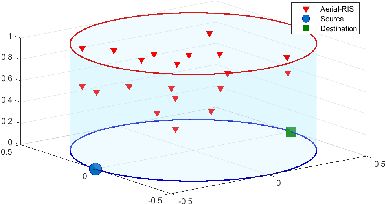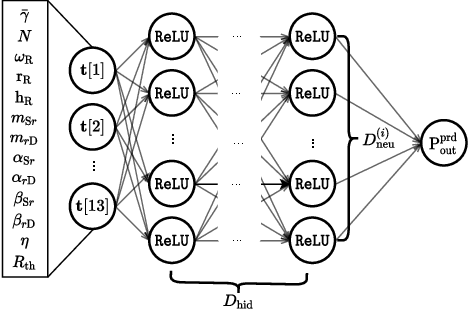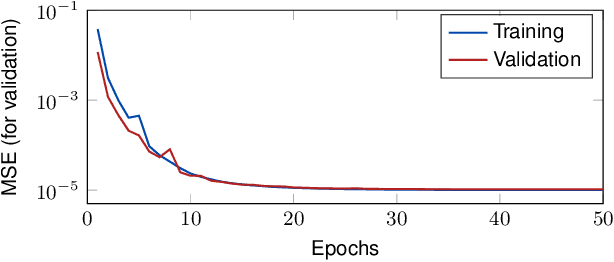Aerial Reconfigurable Intelligent Surface-Aided Wireless Communication Systems
Paper and Code
Jun 09, 2021



In this paper, we propose and investigate an aerial reconfigurable intelligent surface (aerial-RIS)-aided wireless communication system. Specifically, considering practical composite fading channels, we characterize the air-to-ground (A2G) links by Namkagami-m small-scale fading and inverse-Gamma large-scale shadowing. To investigate the delay-limited performance of the proposed system, we derive a tight approximate closed-form expression for the end-to-end outage probability (OP). Next, considering a mobile environment, where performance analysis is intractable, we rely on machine learning-based performance prediction to evaluate the performance of the mobile aerial-RIS-aided system. Specifically, taking into account the three-dimensional (3D) spatial movement of the aerial-RIS, we build a deep neural network (DNN) to accurately predict the OP. We show that: (i) fading and shadowing conditions have strong impact on the OP, (ii) as the number of reflecting elements increases, aerial-RIS achieves higher energy efficiency (EE), and (iii) the aerial-RIS-aided system outperforms conventional relaying systems.
 Add to Chrome
Add to Chrome Add to Firefox
Add to Firefox Add to Edge
Add to Edge